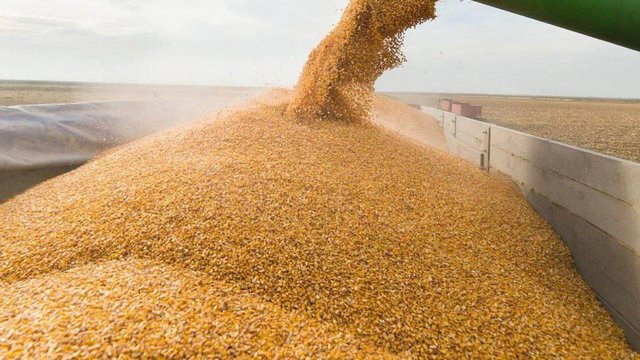All major traders return to Ukraine, annually attract up to $15 bln for export of Ukrainian grain - UGA

As of the 2024-2025 marketing year, all major trading companies that export grain and oilseed crops have returned to Ukraine, which is a very positive fact, because they are able to attract large financial resources and lend for sowing and harvesting, said the president of the Ukrainian Grain Association (UGA), Mykola Horbachev.
"Everyone worried that Western companies would leave (from the Ukrainian market due to the war), and it would be difficult to trade. After all, growing grain is one thing, but selling it is quite another. To export, for example, 50 million tonnes of grain, Western companies attract credit lines to Ukraine for about $15 billion," he said at a meeting of the Grain Club in Kyiv on Wednesday.
The UGA president noted that Ukrainian companies would not be able to export grain on their own not so much because of technical aspects as because of the lack of access to financial institutions and their credit lines. Without large trading companies, according to him, Ukrainian agricultural producers would grow grain, but it would be impossible to buy it due to a lack of funds.
"Traders play a very important role - they finance trade. Most of these companies have a history of 100 or more years. Banks have great confidence in them … It is clear to banks that they can safely open credit lines to them. Even if something happens, the company will not go bankrupt. Such companies strengthen our economic component in agricultural production," Horbachev explained.
According to him, before the war, in the structure of the trading market, large trading companies accounted for 90% of grain and oilseed exports, and the remaining 10% was supplied to foreign markets directly by agricultural producers. At the same time, farmers themselves exported mostly niche products, in particular flax and oatmeal. Their deliveries were carried out by road and rail, and shipments by sea were extremely rare.
"During the war, a number of problems, in particular logistical ones, led to the withdrawal of large exporters from the game. Agricultural producers "tightened" their logistics departments. Today, the picture of traders on the Ukrainian market looks like this: about 70% (of grain and oilseed export volumes) are large companies, and about 30% of producers export directly," said the head of the industry association.
At the same time, he noted the difficulties in the independent trading work of agricultural producers, in particular, the fact that they cannot always find the most effective export routes. In addition, the cost of their transportation is not always cheaper than that of large trading companies. Therefore, it is too early to talk about the sustainability of trading operations of beginners, according to the head of the UGA.
At the same time, the manufacturers themselves, as Horbachev noted, currently consider it advisable to diversify sales options and, in the event of military force majeure, reserve the right to independently deliver products to the buyer.





